Montessori Philosophy
Over the years I've noticed that most Montessori Web Sites present a wonderful text book description of the Montessori Method and philosophy. As I started to write one for this page, I decided to take a new approach and write a description in more up to date and layman's terms. Being an academic, I enjoy text book descriptions, yet I have seen them so often misinterpreted, that I am attempting this approach instead.
Montessorians believe that children are individuals with their own strengths, weaknesses, interests, and learning styles. Since we acknowledge all of these traits in each child, we find it impossible to state that, "Every child needs to be on the same page on the same day."
Instead we believe in working with each child at his or her "cutting edge" or "maximum plane of development". In each classroom you will find children working on different concepts at the level that challenges them, and yet is not frustrating. We believe that when a child is working like this, they are more engaged and focused. This leads to a deeper understanding of the concepts and less boredom or frustration that can result in "misbehavior".
Some people feel that retention or promotion is the answer a child working above or below grade level, and at times they are. Yet, what do you do if a child is socially and/or physically mature enough to be in a higher grade, yet does not possess the skills for that grade? In this case retention might just increase his/her apathy and low self esteem leading to more problems than low grades in the future .
On the other hand, what do you do if a child is academically proficient enough to be promoted to the next grade, but is not physically and emotionally mature enough? In such a case, promotion can place these children in social situations that they are not mature enough to handle, fostering, once again, low self esteem and often poor decision making especially in the higher grades. This can be very dangerous.
Because of these problems Montessorians believe in a different organization to our classrooms.
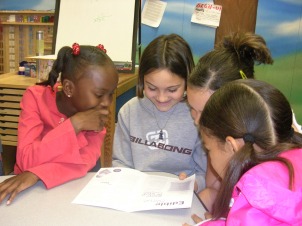
Montessorians believe that mixed age groups (3-6 year olds, 6-9 year olds, 9-12 year olds...) and flexible groupings (When children of equal strength in an area are put together in a group to learn a topic no matter what their age.These groups are not cut in stone, so that once a child has mastered a concept, he or she may move on to the next concept, even if the rest of the children in that group have not.)
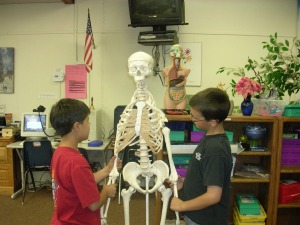
Montessorian believe in hands on, multi sensory/multi modality instruction. (This is where concepts are not just taught by rote memorization or out of a text book, but in a variety of ways using color, sound, movement, logic,... to foster reading, writing, and understanding.)
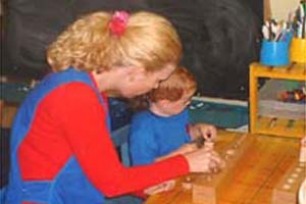
Montessorians believe in Observing the child. This is when we watch the child work, making notes, either mental or on paper, as to what the child knows and how they process or don't process information. We then use this information to help direct the child's learning.
.
Slowly, isolating one new concept at a time we move each child towards or past the district benchmark. Although this process may seem long and tedious, students usually master the grade level standards by the end of the year with a firm foundation in the concepts they are learning.
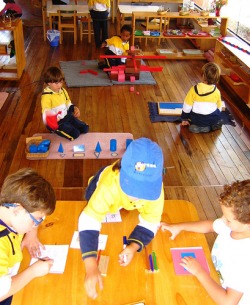
Lastly, Montessorians also believe that it is important that children have "personal liberty" or "choice" when it comes to their education. This, by far, doesn't mean that the child has freedom to color all day, or choose not to do math, but it does mean that we work with each child to cover the standards in ways that are the most meaningful to them. Unless a child is abusing a material, or does not understand what a material is teaching them, each child has a choice as to what they use. This "choice" is what helps to empower them to take responcibility for their own education.
How can a classroom be set up so that it fits the needs of all of its students without being "disorderly"?
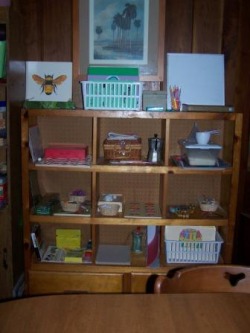
Montessori Classrooms contain what we call a "prepared environment". That is a classroom that has all the materials for every lesson that each child in that classroom will need that day. The lessons are neatly organized and set up so that the children or teacher can easily access and work with them at a moments notice.This is one of the reasons a Montessori Classroom will look so different than a traditional classroom, especially as the children become older.

